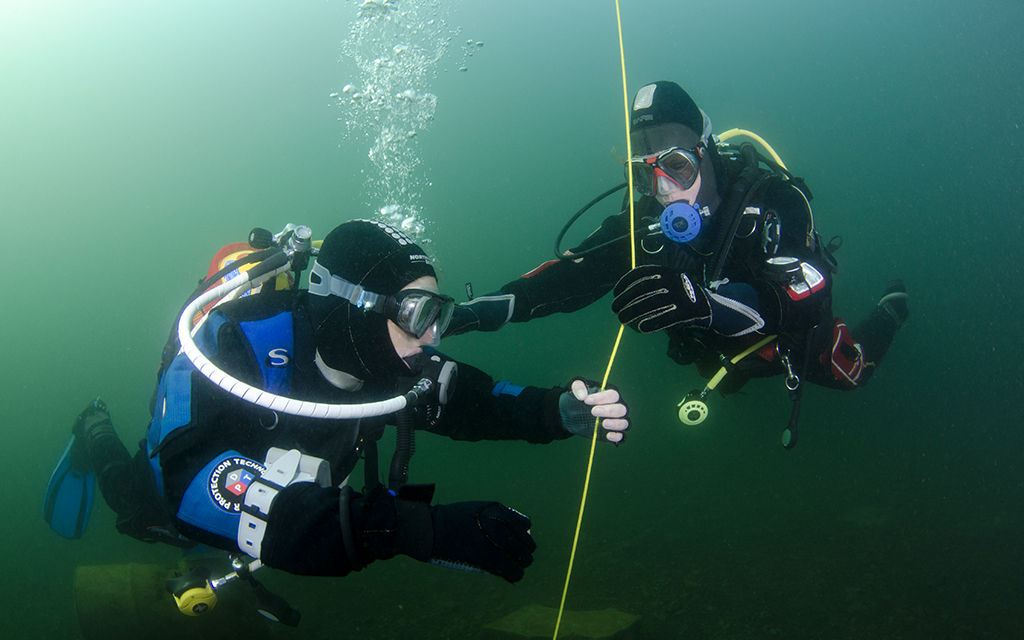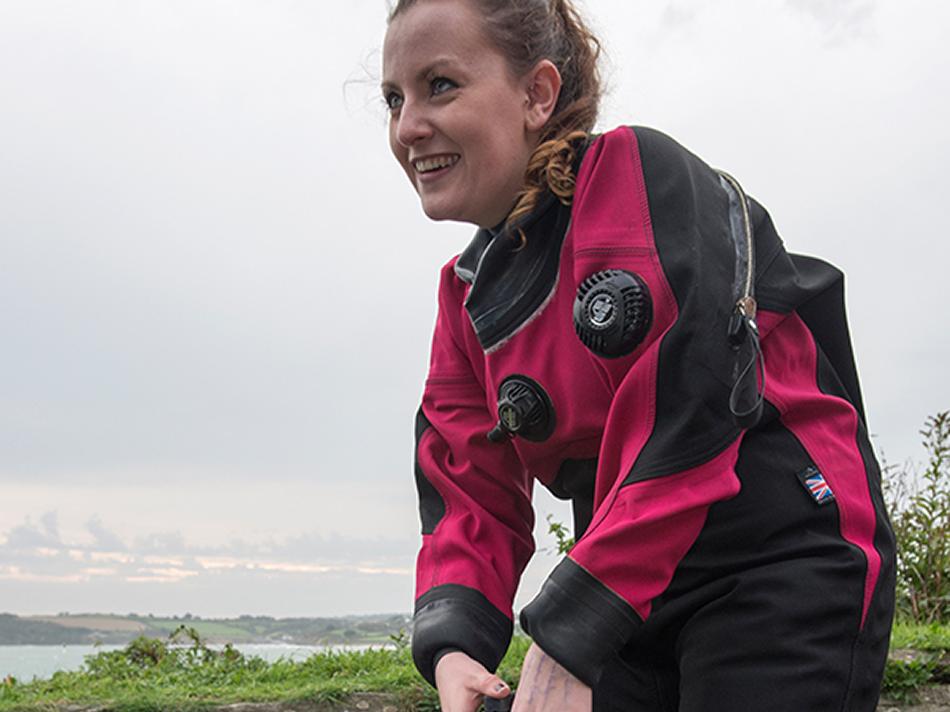
Skills practise is essential following any break of activity as our skills will deteriorate through lack of practice. BSAC Safety and Development Officer Jim Watson offers important advice for all levels of diver to consider for your first dives back.
As restrictions begin to ease it is essential that divers make sure their skills are back up to speed before committing to the level of diving they were at prior to the break. All divers are advised at this time to:
- Refresh their skills appropriate to their level of training
- Practise shallow in controlled conditions
- Build steadily to their previous level of diving
The Skills practise section in the 'Preparation for a return to diving' area on bsac.com provides guidance on both open circuit and CCR Rebreather skills practise, that are encouraged for all divers.
Skills refresh
The extent to which individual divers will be affected will vary considerably based on their original level of skill, range of experience, the extent of any lay-off and any changes in circumstances, such as physical fitness.
Those with limited experience will not have consolidated their skills as much as a highly qualified or vastly experienced diver will, and each will be able to recover those skills to a pre-existing standard at different rates.
- An Ocean Diver who has only completed a few dives post-qualifying and then had a six-month break would require considerable a skills refresher on a couple of shallow dives to regain the standard.
- An experienced Dive Leader with hundreds of dives in experience would need perhaps a few minutes during the early part of a dive to return to a level of comfort and familiarity.
- On the other hand, the range of skills required by more qualified divers, especially in support of more adventurous diving, may require a wider range of skills to be practised before returning to engage in those deeper, longer, more demanding dives.
Each diver therefore should consider their own level and evaluate honestly their own level of skill retention.
Ocean Divers may need to seek advice and support from their instructor.
Core skills
Buoyancy control and DSMB deployment are frequently key skills implicated as factors contributing to incidents. However, all skills taught during different phases of training are there for a reason and so should be regularly practised, including emergency skills.
- Buoyancy control is very much the core of diving skills and is essential to ensure not only safe diving, especially during descent and ascent phases, but also to help protect the environment, especially fragile and vulnerable marine life.
- DSMB and other skills associated with staged decompression procedures should be practised in controlled conditions before they are required to be used when decompression stops are necessary.
Check out the skills practice guidance for open-circuit divers
Start simple
Whatever the starting point, plan to refresh and practise skills in a controlled environment before undertaking more adventurous dives.
For qualified divers it should be effective to use simple shallow dives to practise and refresh skills in a controlled, shallow environment before committing to more adventurous dives.
Skills practise - Rebreather
It is generally accepted that to safely dive a rebreather requires a higher level of competence than open circuit equipment. All skills degrade over time so the prolonged periods of lockdown make it likely that there are a substantial number of rebreather divers who have experienced skill fade.
The NDC Technical group provides separate skills practise guidance for rebreather divers.
Safety seminar
There will be a Safety Seminar on the subject of ‘Skills refreshing’ on Monday 12 April at 7.30pm.
Please book online to reserve your place.
Continuing your preparation for safe return to diving
All divers should continue to maintain their own personal preparations for a return to diving following the current steady easing of restrictions in the UK. There's extensive guidance in the Preparation for a safe return to diving website section, including sections on:
Personal fitness and preparation
Check that you have prepared yourself physically and mentally for resuming diving. Start slowly with a level of exercise that suits you and build on it slowly.
Equipment
Make sure you have had your equipment serviced before returning to diving. It is essential that this life support equipment is fit for use.
Skills practise
Plan to refresh and practise skills in a controlled environment before undertaking more adventurous dives.
Progressive experience
Build up experience progressively as you return, allowing time to refresh skills and confidence.
Dive planning
Plan dives for yourself and others that take account of recent experience and the need to practise skills.
Weather and conditions
Monitor weather conditions in advance, try to avoid spring tides for initial sea dives and be aware that water temperatures may be cooler than you expect.
BSAC has released guidance in the 'Preparation for a return to diving' website section to help members and the wider diving community prepare for a safe return to the water. Check it out.

 Author: Jim Watson | Posted 31 Mar 2021
Author: Jim Watson | Posted 31 Mar 2021



